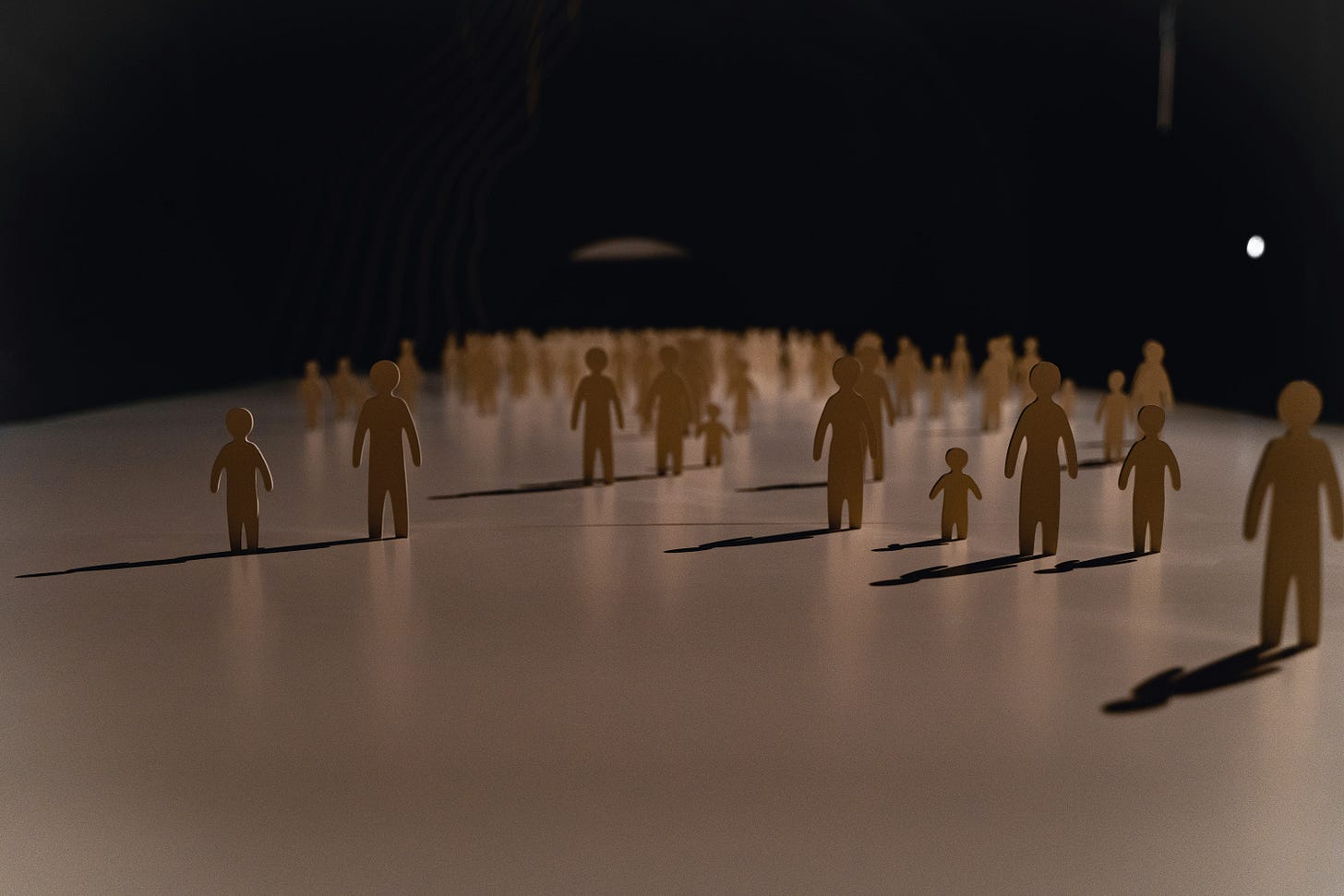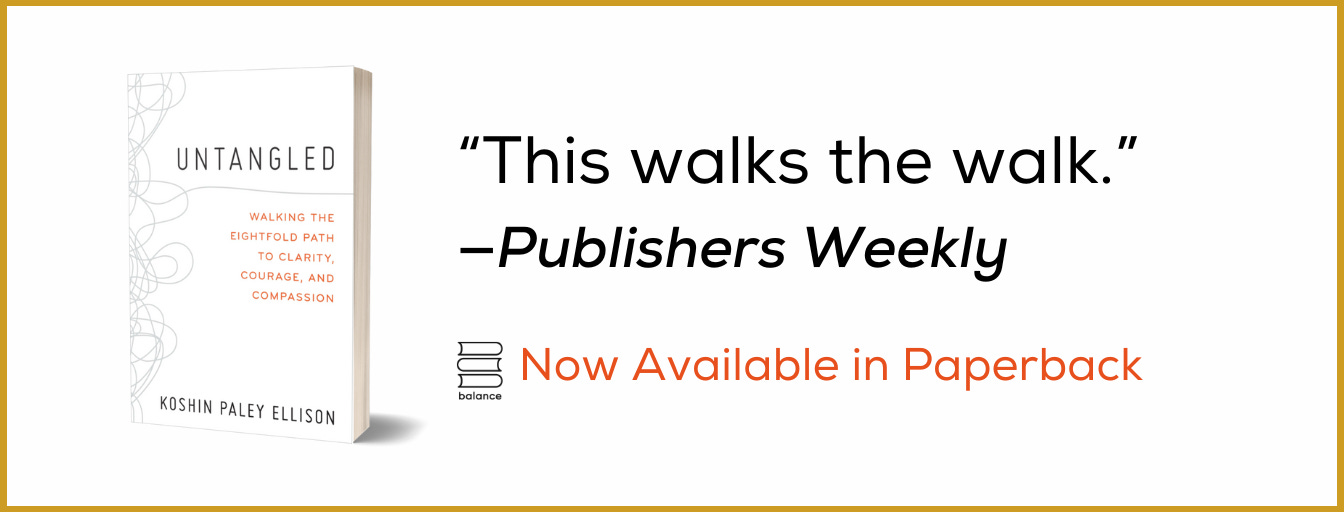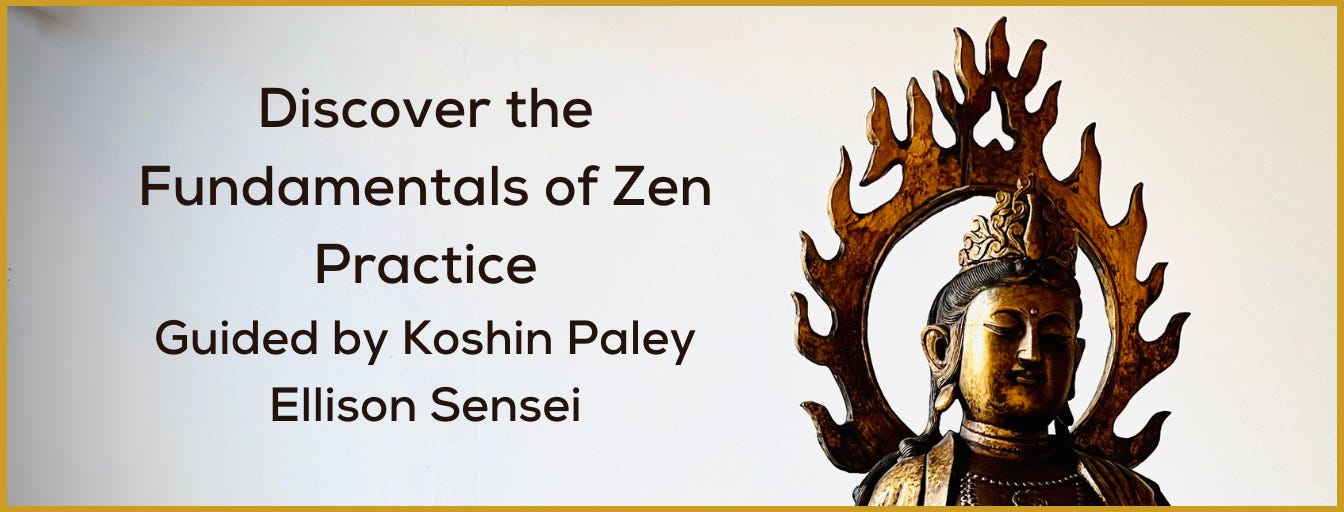How to practice with the stories the separate us
How can you allow curiosity and tenderness to be the path?
I once led a class of seminary students who were part of a religious tradition other than Zen. Somehow the question came up of whether I was gay.
“Well, yes,” I said. When I said this I noticed there was one student who visibly contracted into his seat. He looked terribly uncomfortable; his body language was closed down. I asked him, “How did what I just say impact you?”
He told me he didn’t want to talk about it.
I pushed a bit. “Do you not want to talk about it because you’re uncomfortable with how I might receive what you have to say?”
“Yes,” he said.
I told him how important it was for all of us to hear what he had to say.
The man was a priest from a country where gay people are imprisoned or murdered, and he shared with us that he really struggled with homosexuality. He said, “Where I come from, it’s not accepted, and it’s not right.”
Well, I could certainly understand that. Not about homosexuality. See, I had been raised to hate anyone who contributed to the Holocaust, especially Germans and Poles. At my childhood dinner table it was like, “Would you like some bread and butter? And don’t forget to hate the Germans and Poles, and have a little kugel with that.”
When I was in high school, there was a German exchange student named Elka, and I thought that maybe she was the devil. It was a funny thing for me, because I really liked her as a person and was curious about her, but at the same time, I felt, Oh God, she’s one of them. I was confused because of how I was raised and had a difficult time having a regular relationship with her because of that. So I really did understand what this man was saying about homosexuals.
I told him that I appreciated his sharing his feelings. This uncomfortable and truthful exchange allowed everyone to share about a particular group that they had difficulty with, that they were raised to believe was wrong or to be hated.
For some people it was women; others talked about White, Black, Hispanic, Jewish, or Asian people.
No one had any trouble coming up with some group that they were raised to think was lesser or wrong.
By the end of the time with that priest, I actually felt warmly connected with him. For me it was an eye-opening and freeing conversation, to see that we all have the potential to be—a misogynist or a homophobe or a racist. We are all the same in that way, even though each one of us is unique.
It is important to remember that it is actually not necessary for diversity to create distance between us. What creates distance are the stories we tell ourselves about others—about whole groups of people, sometimes!—that separate us and set one person above another.
Tasting the freedom that comes with considering everyone as equals is a place of practice.
With lots of effort and practice, we can learn to release ourselves from clinging to our stories about what other people are. We can realize instead that we are all part of “the one bright pearl,” as Dogen puts it, and taste the freedom that comes with considering everyone as equals. This does not mean that everyone is the same but that everyone should be treated with the same respect and dignity.
This is how we practice not elevating ourselves and blaming others.
In Zen, they often use the number ten thousand to essentially say “unlimited.” There are ten thousand different ways of life, and they are all right. Easy to say, hard to actually practice, especially since we’re all socialized to identify with a particular gender, class, cultural, or ethnic and racial group, whatever those may be.
Let’s practice together.
Starting today, I encourage you to notice the stories you tell yourself that elevate or otherwise separate you from others. You can begin by considering the following questions: What is a quality you dislike in others? How does this quality live in you? How can you practice appreciating and enjoying others as they are?
The next time you notice yourself judging a quality in someone else, see if you can identify the same quality within yourself. Take some time to reflect on how that quality has impacted others in your life. Recognize how our barriers can become gates we walk through to experience connection and compassion.
Let’s have a dialogue.
I’m curious.
How do you get caught up in stories that impede relationship and connection? When was a time that your initial judgments about someone was transformed through genuine dialogue or an actually encounter? You are invited to share your experiences in the comments below for the benefit of us all.
May you discover the freedom that comes from dropping the stories that separate you from others.
Koshin.











Dear Koshin, No surprise that I’m reading your essay at the right moment in my life! Two weeks ago, my husband, Mark, was unexpectedly summoned to the director’s office at the Houston Jung Center. He thought that perhaps the director Sean was concerned about Mark’s recent fungal bronchial infection that has resulted in a dramatic weight loss of twenty pounds. There, three administrators, including a newly hired Human Resources official, accused him of “inappropriately touching” three young female staff members. Mark was shocked and couldn’t recall any such incidents, although, like most folks in our generation, he frequently touches people lightly during conversations.
The director, whom I had considered a good friend and psychotherapy colleague, asserted that none of the accusers wished to speak directly with Mark. My husband returned home visibly upset and didn’t sleep that night. To his pleased surprise, one of the accusers phoned to say that she was willing to discuss an incident when he touched her leg during an attempt to empathize with her. To her, the incident was no big deal and they easily cleared the issue in a brief phone call.
The following day, I wrote the director to ask for a brief interview to convey the unintended karmic consequences of his administrative confrontation with Mark. No reply. I drove 10 minutes from home to the Jung Center to request an interview in person. As I waited in the lobby, Sean texted me from his office to indicate that it was inappropriate for me to be “in the building of the corporation about this matter,” which he is “not legally permitted to discuss with any party not involved in ongoing investigations.” When I started to cry, another of Mark’s accusers entered the lobby to say, “I didn’t intend to cause pain. I have a good working relationship with Mark and am happy to speak with him about my aversion to physical touch.” With thanks, I assured her that their direct conversation would be very beneficial.
As she returned to her office, I texted Sean to express my profound disappointment in the legalistic way that he was handling the situation. Shortly afterwards, he emerged from his office to introduce me to Danna, the new Human Resources Director. After exchanging greetings, I asked her, “Where’s the HUMAN in this procedure?” She and Sean stated that they were not legally allowed to speak to me about “the case under investigation.” I asked if my 48-year-relationship with my accused husband had any bearing on their so-called “fact finding.” Danna replied, “These procedures may seem emotional and personal to you, but we’re just following HR ‘best practices.’” Unable to meet my eyes, Sean forbade me to talk to any Jung Center staff about their procedures. He informed me that he was just about to depart for a two-month sabbatical and would not be reading work-related emails during that time. Then he and Danna returned to his office, leaving me in tears.
Thanks to decades of dharma practice, I was able to calm myself down by sensing my feet on the ground and breathing deeply into my belly. Once I could think clearly, I supported Mark in reaching out for legal counsel.
On July 1, I led my final “Power of Community” meditation for the Houston Jung Center. I initiated a highly productive meeting with a friend who serves as the Jung Center’s Board President. He spoke supportively about the unfortunate “rupture” with Sean. I connected with feelings of compassion for Sean, who has been so stressed lately that he needs a two-month break. I now include Sean in my daily forgiveness practice.
I have been looking for ways to cut back on activities so that I can focus more on writing my current book and on my relationships with my Soto Zen teacher and NYZC sangha. Although I was not anticipating such unpleasant interactions at the place where Mark and I have taught and served loyally for 14 years, the result is that I am now liberated to concentrate my energies on new priorities.
Dear KoShin, thank you for your generous vulnerability and tenderness and your compassionate strength. I will use this direction in practice with my students next week. With gratitude and respect, Andrew JiYu.